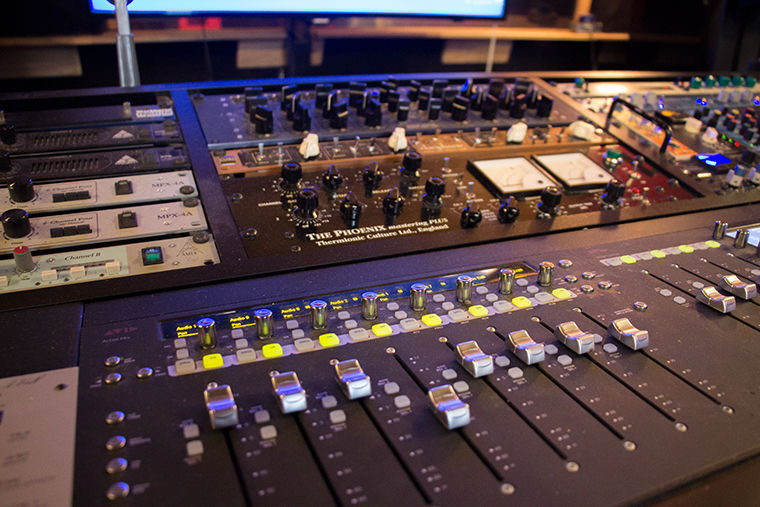DIY recording’s impact on musicians, engineering process
February 5, 2018
Traditional recording studios, filled with high-priced analog equipment and veteran engineers, are becoming a dying breed because of widespread availability of personal recording equipment.
In response to this industry shift, engineers have begun to invest in their own hardware and create do-it-yourself studios to stay afloat.
Chicago was once home to five multi-room staff-based studios in the ‘80s—CRC, Streeterville, Universal, River North and Zenith/DB. Now that number stands at only one, according to Benj Kanters, an associate professor in the Audio Arts and Acoustics Department.
DIY recording with lower equipment overhead has meant that engineers can scrape together a relatively small sum of about $300 to create studios in their apartments. Soundscape Studios, a professional recording studio in Ukrainian Village, started out as a DIY venture, owner Michael Kolar said.
“The most entry-level Pro Tools rig was about $30,000,” Kolar said. “So instead, I started with a TASCAM Portastudio and recorded in the corner of my parents’ garage. That propelled me to make what is now a modernized non-DIY studio.”
While Kolar said the age of DIY recording has shifted what Soundscape provides, studios offering experienced engineers will always have a place to make home recordings sound radio ready.
“We provide a place where people can take their fleshed-out DIY recordings and give them that polished edge,” Kolar said.
Kanters said the DIY revolution has allowed everyone the ability to record, much like how smartphone cameras have disrupted the personal camera industry, he said. This has restructured how people view the professionals and the job they do.
“If you wanted to take pictures, you used to hire a photographer,” Kanters said. “Then Kodak came up with cameras that you can own personally. Now Kodak is gone because it’s all digital. So basically, the same thing has happened [with recording].”
Rob Mefford, senior engineer at Glass Tree Creative, a South Loop recording studio, said he thinks recording at a specially designed studio space with professional engineers takes pressure off musicians by relieving them of technical responsibility.
“The great thing about coming to Glass Tree, or any other professional studio for that matter, “ Mefford said, “is that you can trust the person handling the process and in that sense you can be your truest form as the artist and let someone else be the medium for that.”
Logan Meyer, a senior audio arts and acoustics major with his own home studio, said a technology-geared generation sees in-person, high-end recording studios as “intimidating.”
Meyer said after visiting a well-known downtown recording studio, CRC, he was told that aspiring engineers who interned worked long hours with a lot of drudgery because of the field’s fierce competitiveness.
“They [said], ‘If you want to work in this environment, you have to spend five years sleeping on floors, working doubles on the weekend,’” Meyer said.
While engineers do not have as many traditional staff positions available at high-end studios, they do have the newfound ability to put down a large amount of cash to invest in their own gear and run sessions out of their home or dorm room.
“Studios always have to adapt and overcome,” Kolar said. “At the end of the day the goal of a studio is to serve a young generation of artists. I’ve seen a couple of generations come and they all tackled [the recording process] differently. I feel my job [as an engineer] is to help facilitate and elevate what they’re doing rather than enforce the doctrine of how records were made at the time of when I was a young person.”








